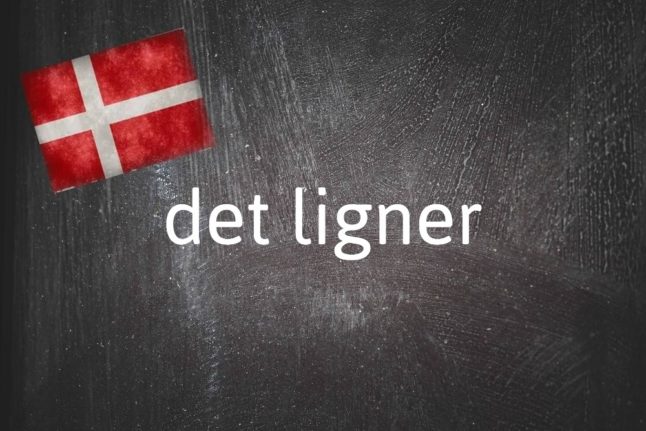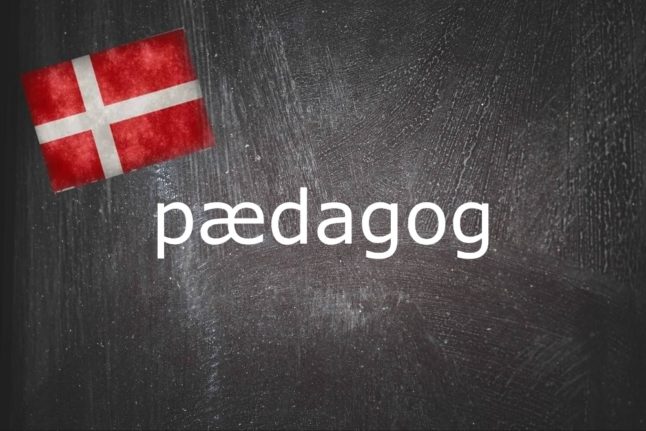What is det ligner?
The verb at ligne is another example of a word that enables Danes to say something in fewer words than the equivalent sentence in English.
Meaning “to look like”, it normally has a straightforward use: han ligner sin mor, for example: “he looks like his mother”.
Arguably, there is an English verb directly equivalent to at ligne which would allow you to say the above sentence in neither more nor fewer words than the Danish version. “He resembles his mother” would also be an acceptable translation of han ligner sin mor.
Despite this, I’d argue “looks like” is more accurate in most situations and contexts, because at ligne does not have the formal feel of written language that “resemble” conjures up.
Why do I need to know det ligner?
When you put the pronoun det (“it”) in front of the verb, making it “it looks like”, the use of at ligne can take on a different meaning.
In the sentence det ligner, at det bliver regnvejr hele weekenden (“it looks like it will rain all weekend”), ligner drops its equivalence to “resemble” and, similar to “looks like”, can be used to make a prediction.
According to language regulator Dansk Sprognævn, this alternative use of det ligner has emerged in the last 20-25 years. That being the case, you might speculate that it has occurred as a result of the English phrase being adopted into Danish, even though it makes less sense in Danish in its original guise.
This is not necessarily true. Another way of talking about an uncertain future event in Danish is to say det ser ud til, approximately “it looks as though”. Det ser ud til, at det bliver regnvejr is, in fact, probably closer to “it looks like it will rain” than any translation that uses det ligner.
Nevertheless, det ligner is a concise way of talking about something that looks likely to happen in the future. You would normally say it based on some form of evidence, rather than your own instinct: in the examples above, darkening grey clouds on the horizon would probably get people saying det ligner regnvejr.
Examples
Det lignede en sikker sejr for hjemmeholdet, men så lukkede de tre mål ind i anden halvleg.
It looked like a comfortable victory for the home team, but they conceded three goals in the second half.
Er du okay? Du ligner slet ikke dig selv.
Are you ok? You don’t look yourself at all.



 Please whitelist us to continue reading.
Please whitelist us to continue reading.
Member comments